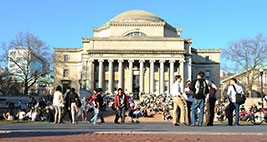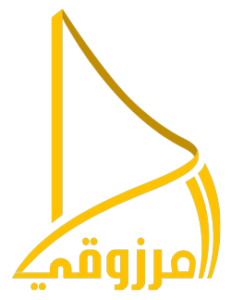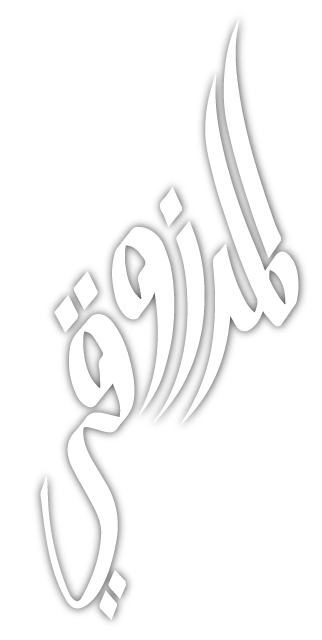Columbia University – Sept 2014
Ladies and gentlemen, Professors, and students,
Thank you very much for this invitation. It is an honor for me to be given the opportunity to talk about Tunisia in one of the most prominent universities.
This lecture represents a compelling challenge for me, as it requires me to step out of the shoes of the policymaker for a moment, and take up the role of the intellectual. As Edward Saïd used to remind us, the role of the intellectual is to speak truth to power, but power does not always like to hear the truth. A head of state cannot easily say what he thinks as an intellectual without running the risk of causing diplomatic incidents, and increasing political tensions. But at the same time, he has to say what he considers to be the truth. Truth is most needed, in this time of confusion and anxiety. Before I engaged into politics, I worked as a medical doctor. This experience has taught me that no adequate solution can stem from an erroneous diagnostic.
The perception of a head of state is indeed influenced by his particular situation/location. He has a panoptic view on a large source of information, and yet can sometimes be blinded by this overwhelming source of data. His position is constantly threatened, and threatening. For all these reasons, I cannot pretend to offer an objective analysis, but I will try to be as frank/candid/honest as a politician can be. While it is often assumed that politicians are hypocritical and insincere, I do not believe that’s true. As flawed as it may be, the logic of politics has its own legitimacy, and one of its primary objectives is to build consensus. In the current context of tension, uncertainty and civil war in the Arab World, the formation of consensus is not an objective to underestimate.
Let me begin by reminding you of the 2 conditions that are necessary to understand and discuss what has come to be labeled as the Arab Spring.
First, it is important to abandon enduring essentialist models that have long informed the analysis of politics in the Muslim world. Unfortunately, ideas such as the supposed incompatibility between Islam and democracy, or the supposed natural preference of Arabs for strong leaders are still very influential. Let’s be clear, such clichés have no explanatory power, and the current difficulties the region encounters should not serve as an excuse to reenact them. The turmoil that countries are now facing in the post-revolution context is not an effect of Islam or of the Arab culture, but an effect of democracy. As Walter Clemens reminded us in an article of the NYT two weeks ago, Plato already warned us of the dangers of democracy. Democracy brings chaos, and with chaos comes the desire to return to order, submission and dictatorship. Democracy brought tyranny in Germany in 1933, and in France in 1940.This all happened in non-Muslims contexts, well before the coup that took place in Egypt this past summer. The uncertainty, and dangers that the Arab world is now struggling with are inherent to democracy, not to Islam or the so-called Arab culture.
The revolutions that took place throughout the Arab world in 2010 were neither truly religious nor truly secular. They opened up a new space that is situated beyond this binary. The resurgence of the political use of the old secular-versus-religious binary should not lead us to go back to endorsing this inadequate framework of analysis.
Just like in any country, the revolution that took place in the Arab world is a political, social, and psychological revolution. It is a social transmutation, the objective of which is the redistribution of what I call the three main social forces (the three “P”): power, prosperity and pride.
Different sources have driven the revolutionary forces. Collective inequalities and individual injustices due to the widespread corruption and the incompetence of civil servants are a primary cause of the uprisings. But more positive factors are at work too. The international spread of the norms of human rights and democracy has contributed to changing people’s expectations everywhere in the world. The power of imitation and the force of good examples, enhanced by the role of international channels and social media, have increased people’s hopes, demands, and notion of their own agency and capacity. Throughout the numerous demonstrations and protests that have taken place since 2010, the notion of collective action became a reality and an opportunity. In this process, the balance of power has radically changed. A new equilibrium among the three forces –power, prosperity, and pride- is taking shape.
Second, while keeping in mind the specificity of each political culture and history, it is essential to situate the current revolutions in the perspective of other, and former revolutions. All revolutions come with a price. France
Those who initiated the revolution do not always benefit from it. URSS
Not all revolutions succeed, and most require a lot of time before they achieve some of their goals. US
All revolutions give birth to a counter-revolution. Chili
That being said, I want to stress the diversity of situations that have emerged from the Arab Spring. One should refrain from too hastily comparing situations in Tunisia, Libya, Egypt and Syria. Each country requires an adapted and distinct assessment. The pacific revolution of Tunisia, that caused 380 death is not comparable to the civil war that erupted in Syria (with 100 000 death so far). While the coup has stopped the transitional process in Egypt, the process of political negotiations and deliberations continues in Tunisia. Varying social, economic and cultural characteristics explain the form that a revolution takes in different countries. Let me spell out the main dynamics that make the Tunisian pathway so specific.
By many standards, the population of Tunisia is much more homogeneous than that of neighboring countries. Made of 99% people from Sunni origins, it is also ethnically quite homogeneous (with a minority of 1% of Berbers) and the middle class represents a large proportion of society. Due to the geographical and historical proximity to Europe, Africa, and the Middle East, Tunisian identity has been historically constructed through the contacts and exchanges with different cultures, religions, and languages. Tunisia is at once an Arab country, an African country, a Southern-European country, and a Mediterranean country…Contrary to what alarmist accounts suggest when talking about a country on the verge of civil war, civil society is strong, vigilant and yet responsible, inflexible and yet peaceful. Most importantly, secular and Islamist opponents to the dictatorship have learned to go beyond their disagreement, and work together at least since the late 1990’s.
In spite of these promising ingredients, the democratization process that began Tunisia faces many challenges and dilemmas. The revolutions everywhere in the Arab world have had pervert effects, the magnitude and impact of which are unpredictable. Tunisia is now struggling with all these ironies.
The revolution brought a free press that is now being polluted by individuals of the former regime, who mistake rumors for information, and conspiracy for analysis.
One of the key objectives/claims of the revolution was the independence of justice. Concretely, this means that judges who used to comply with the ways of the former regime began to act as if they were independent from state institutions, while they are overtly dependent on opposition parties, including those of the former regime.
Like in many countries, the transparency and fairness of elections is put in jeopardy by the question of financing of political parties, media manipulation and the competition among regions.
One of the main tasks for Tunisians today is to find a way to keep up with these rights – a free press, an independent justice and free and fair elections- while containing their pervert effects.
One thing we know is that the revolution has brought a demand for democracy. And even though the ongoing crises and threats have increased the general sense of anxiety, this demand is still very much alive. Contrary to what some commentators have alleged, the fear of democracy has not translated into a desire for the return of dictatorship. What we don’t know, however, is whether the institutions and rights established by democracy will lead to the triumph of the counter-revolution and the return of the former regime.
Tunisia today is at a crossroads. In order to give you a balanced assessment, let me outline the most important destructive and constructive factors. Some media are increasingly manipulated and they abuse of the argument of the freedom of the press to justify their unfounded attacks against members of the democratic government. Judges are increasingly politicized and act as active members of the opposition parties, instead of neutral arbiters. The economy is blocked, due to the absence of investments from the inside and the outside world. Because investors are waiting for the return of a definitive stability, we are drawing on our reserves. Last but not least, terrorism remains a constant threat and source of instability, as the events taking place in Mali, Libya, and Syria have become a matter of Tunisian domestic politics. 2 murders.
But this is not the whole story.
Tunisia has also a number of decisive instruments to overcome these obstacles. Dialogue has never stopped between the government and opposition parties, and among opposition parties. This has prevented the forces of the counter-revolution, whose main goal is to increase the political polarization, to succeed. Institutions remain strong, despite the repeated attacks and attempts at weakening them. The army is legalist, disciplined and respectful of state institutions. Civil society is organized but has strongly rejected violent forms of mobilization. Women are more empowered than before: the number of women in political parties and in the government has increased-even though it is still insufficient. Violence and assault against women do not go unpunished any more, as was shown by the remarkable mobilization of Tunisian society against the two policemen who assaulted a woman in 2012. After numerous months of intense and lively disputes in the Assembly, parties have now found an agreement on the articles fully guaranteeing gender equality.
For all these reasons, I like to compare the process Tunisia has followed so far to the image of a troupe that is dancing by the cliff. Fear of chaos has been constant since December 2010, obstacles have been and remain numerous, and yet Tunisians have collectively created a unique path, whereby consensus and peace ultimately overcomes.
Before I conclude, let me say a few words of a project that is dear to me, and that I have presented at the United Nations yesterday. Let’s go back to the year 2000, and let’s imagine that an international constitutional court exists. Suppose this court can decide whether an election is valid, and whether a national constitution is conform to international law and the principles of the UN, the universal declaration of human rights and international covenants. This court has the power and legitimacy to invalidate elections, to determine whether a national constitution guarantees the freedoms and rights acknowledged by the UHRD. If it does so, regime can then be declared illegal, and cannot be recognized by the UN.
Let’s now consider the case of Bashar El Assad who received on June 20, 2000 the presidency of the Syrian republic as an inheritance present from his father. Let’s suppose that his case be presented before the ICC and that the court would have declared his Presidency illegitimate.
oMay be we wouldn’t count 100 000 death and 7 millions of displaced people. And may be we wouldn’t have another powder keg in the Middle East. My dream is that one day an International Constitutional Court can be created, and that it can prevent such catastrophes from taking place. A group of Tunisian legal scholars and judges have been working to define the ways to implement such a project in the past couple of years and it has already gained the positive attention of many legal experts in the international community. It is not a coincidence if this project was born in an Arab country. Arab countries know all too well what dictatorship was, what enduring threat it represents, and why it is urgent to fight it by all means.
In conclusion, I want to go back to the comment I made in the beginning about the inherent risks and dangers of democracy. Democracy is a constant work in progress and under a continual process of experimentation. Today, the Arab world is one of the major sites of experimentation of this type of political regime. Tunisia in particular is in the process of developing its own experimentation, that will possibly lead to new solutions and methods that could be useful to other countries. The driving power that the principles of consensus and dialogue has become over the months, in spite of all the crises, has given the Tunisian transition process its originality and hopefully its success. In the meantime, we have no other choice than continuing to struggle to achieve this objective. As the poet Majado used to say, the road does not exist, there is only the walking.
Thank you very much


